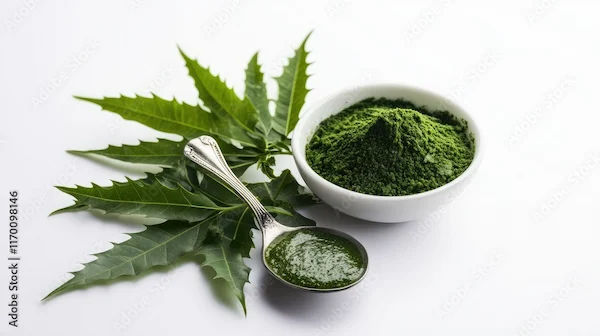Guide to Apple Cider Vinegar Effective Dissolving Kidney Stones
Know about the apple cider vinegar for kidney stones, what they are, how to recognise the symptoms, how it helps and how to use them, prevention, identifying risks and a holistic approach to manage kidney stones and more.


Introduction
The sudden, crippling pain of a kidney stone is an experience no one forgets. As you search for relief and ways to prevent a recurrence, you’ve likely encountered countless home remedies, with apple cider vinegar (ACV) standing out as a popular suggestion. This guide cuts through the noise to provide a clear, evidence-based look at using apple cider vinegar for kidney health. We’ll know the outline of a safe method for use, discuss the crucial scientific evidence and precautions and management. Remember, while natural remedies can be supportive, they are not a substitute for professional medical advice, especially for a condition as serious as kidney stones.
What Are Kidney Stones and What Causes Them?
Kidney stones are hard, crystalline mineral deposits that form inside your kidneys. They start as microscopic particles and can grow to the size of a pea, a marble, or even larger. The formation process often begins when your urine becomes concentrated, allowing minerals to crystallise and stick together. Passing these stones, especially larger ones, can be an intensely painful process as they travel through your narrow urinary tract.
Consult a Nephrologist for Personalised Advice
The Agony of a Stone: Recognising the Symptoms
Many small stones pass unnoticed. However, larger stones can cause unmistakable signs, including:
- Severe, sharp pain in the back, side, lower abdomen, or groin.
- Pain that comes in waves and fluctuates in intensity.
- Pink, red, or brown urine (hematuria).
- Cloudy or foul-smelling urine.
- A persistent need to urinate, urinating more often than usual, or urinating in small amounts.
- Nausea and vomiting.
- If an infection is present, fever and chills may occur.
Common Types of Kidney Stones
Knowing the type of stone is key to prevention.
The most common include:
- Calcium stones: (Most common, usually in the form of calcium oxalate). Caused by high oxalate levels in urine, often
linked to diet. - Uric acid stones: Form in people who don’t drink enough fluids, lose too much fluid, eat a high-protein diet, or have
gout. - Struvite stones: Form in response to a urinary tract infection (UTI).
- Cystine stones: Form in people with a hereditary disorder that causes the kidneys to excrete too much of certain amino
acids.
The Theory: How Can Apple Cider Vinegar Help?
The proposed benefits of ACV for kidney stones are rooted in its chemical composition.
The Acidic Power of Acetic Acid
ACV’s primary component is acetic acid. The theory suggests that this acid can help break down and dissolve small
stones, making them smaller and easier to pass. Furthermore, acetic acid may help create a less favourable environment
in the kidneys for new stones to form.
The Role of Citrate in Stone Prevention
Some studies and traditional practices highlight the importance of citrate (citric acid) in preventing kidney stones. Citrate in the urine binds to calcium, preventing it from forming crystals with oxalate. While apple cider vinegar itself is
not exceptionally high in citrate compared to, say, lemon juice, it does contain some. Proponents believe that the
combination of acetic acid and citrate can alkalize the urine pH, creating an environment where certain types of stones,
particularly uric acid stones, are less likely to form.
How to Use Apple Cider Vinegar for Kidney Stones Safely
If you choose to try ACV, it is paramount to do it correctly to avoid harm.
Choosing the Right Apple Cider Vinegar
Always opt for organic, unfiltered, raw apple cider vinegar that contains the "mother." The mother is a cloudy, cobweb-
like substance made of beneficial enzymes, proteins, and bacteria that is believed to contain many of ACV's health
properties.
A Simple and Safe Dosage Recipe
Never drink apple cider vinegar straight. Its high acidity can damage tooth enamel and the lining of your oesophagus.
- Ingredients: 1-2 tablespoons of raw ACV, 8 ounces (240 ml) of warm or cool water, (optional) a teaspoon of honey or a
squeeze of lemon juice for flavour. - Instructions: Mix the ACV thoroughly into the large glass of water. Drink it with a straw to minimise contact with your
teeth.
When and How Often to Drink Your ACV Tonic
A common recommendation is to drink this mixture once or twice a day, preferably before meals. Consistency is key if you are using it as a preventative measure. If you are experiencing active pain, do not use this as a sole treatment.
What Does the Science Say? Examining the Evidence
It is crucial to address the evidence head-on. Currently, there is no robust, large-scale clinical evidence that conclusively proves apple cider vinegar can dissolve or eliminate existing kidney stones in humans. Most evidence is anecdotal or based on traditional use. Some laboratory studies on acetic acid show potential for dissolving stones, but these conditions do not perfectly replicate the complex environment of the human body.
The U.S. National Institutes of Health (NIH) notes that while some alternative remedies are popular, their efficacy isn't always proven. Therefore, ACV should be viewed as a potential supportive measure within a broader prevention strategy, not a proven cure. If your condition does not improve after trying these methods, book a physical visit to a doctor with Apollo24|7 for a proper diagnosis and treatment plan.
Important Precautions and Potential Risks
ACV is not without its risks and is not suitable for everyone.
Who Should Avoid Apple Cider Vinegar?
It includes:
- People with diabetes: ACV can lower blood sugar levels and may interact with insulin or diabetes medications.
- People with low potassium levels (hypokalemia): ACV may further reduce potassium levels.
- Those taking diuretics, digoxin, or other heart medications: ACV can interact with these drugs.
- Individuals with GERD, acid reflux, or stomach ulcers: ACV can worsen these conditions.
- Anyone with chronic kidney disease: Impaired kidneys may not handle the extra acid load effectively.
Protecting Your Tooth Enamel and Oesophagus
The acidity of ACV is its greatest asset and its biggest drawback. Always dilute it and consider rinsing your mouth with
plain water after drinking it. Using a straw is highly recommended to bypass your teeth.
Beyond ACV: A Holistic Approach to Kidney Stone Prevention
Relying solely on an ACV drink recipe for kidney pain is insufficient. Effective prevention is multifaceted.
Hydration is Your First Line of Defense
This is the single most important advice. Drinking plenty of water (aim for 2-3 litres per day) dilutes the substances in
urine that lead to stones. Your urine should be light yellow or clear.
Dietary Modifications Based on Stone Type
It includes:
- For calcium oxalate stones: Reduce foods high in oxalates (spinach, nuts, rhubarb, beets) and maintain a moderate calcium intake from food (don't avoid it, as calcium can bind to oxalate in the gut).
- For uric acid stones: Reduce intake of purine-rich foods (red meat, organ meats, shellfish, beer).
The Role of Other Beneficial Supplements
- Lemon Juice: High in citrate, making it a well-regarded natural preventive. Add fresh lemon juice to your water
throughout the day. - Magnesium: Helps inhibit the formation of calcium oxalate crystals.
When to Absolutely See a Doctor
While home remedies can be part of your plan, certain symptoms require immediate medical attention.
Consult a doctor online with Apollo24|7 for further evaluation if you experience:
- Severe, unbearable pain.
- Pain accompanied by nausea, vomiting, fever, or chills.
- Difficulty passing urine or blood in the urine.
- Inability to find a comfortable position.
A doctor can provide a definitive diagnosis through imaging (like a CT scan) and recommend appropriate treatments, from pain management and medication to procedures like lithotripsy to break up larger stones.
Conclusion
Apple cider vinegar has earned its place in the natural health cabinet, and its potential role in managing kidney stones is intriguing. When used wisely and safely, it can be a component of a comprehensive preventative strategy. However, it is vital to temper expectations and understand that it is not a magic bullet. The real heroes of kidney stone prevention are the simple, proven steps: drinking copious amounts of water, adjusting your diet based on your specific stone type, and maintaining a healthy lifestyle. If you are prone to stones, work with a healthcare professional to develop a personalised plan. Listen to your body, and never hesitate to seek expert care for severe symptoms. Your kidney health is too important to leave to unproven remedies alone.
Consult a Nephrologist for Personalised Advice
Consult a Nephrologist for Personalised Advice
Dr Ch Sashidhar
Nephrologist
20 Years • MBBS, MD General Medicine, DNB, Nephrology
Secunderabad
Apollo Hospitals Secunderabad, Secunderabad

Dr. Pardha Saradhi
Nephrologist
9 Years • MBBS, MD-DNB (Gen. Med.), DNB (Nephro)
Hyderabad
Apollo Hospitals D R D O kanchanbagh, Hyderabad
(75+ Patients)

Dr Praveen Kumar Etta
Nephrologist
10 Years • MBBS,MD DM(SGPGI) FORMER ASST(PIMS)
Hyderabad
Apollo Spectra Ameerpet, Hyderabad

Dr. Aswini Kumar Panigrahi
Nephrologist
23 Years • MBBS, MD (Int. Med.), DNB Nephro
Hyderabad
Apollo Hospitals Jubilee Hills, Hyderabad
(225+ Patients)

Dr Ajay Kumar Sharma
Transplant Specialist Surgeon
39 Years • MBBS, MS, DNB, FRCS (Glas), FRCS (Edin), FRCS (General Surgery), MSc Medical Education
Delhi
Apollo Hospitals Indraprastha, Delhi
Consult a Nephrologist for Personalised Advice
Dr Ch Sashidhar
Nephrologist
20 Years • MBBS, MD General Medicine, DNB, Nephrology
Secunderabad
Apollo Hospitals Secunderabad, Secunderabad

Dr. Pardha Saradhi
Nephrologist
9 Years • MBBS, MD-DNB (Gen. Med.), DNB (Nephro)
Hyderabad
Apollo Hospitals D R D O kanchanbagh, Hyderabad
(75+ Patients)

Dr Praveen Kumar Etta
Nephrologist
10 Years • MBBS,MD DM(SGPGI) FORMER ASST(PIMS)
Hyderabad
Apollo Spectra Ameerpet, Hyderabad

Dr. Aswini Kumar Panigrahi
Nephrologist
23 Years • MBBS, MD (Int. Med.), DNB Nephro
Hyderabad
Apollo Hospitals Jubilee Hills, Hyderabad
(225+ Patients)

Dr Ajay Kumar Sharma
Transplant Specialist Surgeon
39 Years • MBBS, MS, DNB, FRCS (Glas), FRCS (Edin), FRCS (General Surgery), MSc Medical Education
Delhi
Apollo Hospitals Indraprastha, Delhi
More articles from General Medical Consultation
Frequently Asked Questions
1. How long does it take for apple cider vinegar to dissolve a kidney stone?
There is no guaranteed timeline, as it depends on the stone's size and composition. ACV is not a reliable method for dissolving an existing stone. It is better viewed as a long-term preventative measure rather than an acute treatment.
2. Can I use apple cider vinegar if I'm currently experiencing kidney stone pain?
You can try it, but it is unlikely to provide immediate relief from severe pain. It should not delay you from seeking medical attention. If the pain is intense or accompanied by fever, seek help immediately.
3. What is better for kidney stones: apple cider vinegar or lemon juice?
Lemon juice has a stronger scientific backing due to its high citrate content, which is a known inhibitor of stone formation. Many urologists recommend lemon water as a preventative strategy. ACV may offer similar benefits due to its acetate content, but lemon juice is often the preferred choice based on available evidence.
4. Are there any specific tests to know what kind of kidney stone I have?
Yes. If you pass a stone, try to save it for analysis. Doctors can also use urine tests (24-hour urine collection) and blood tests to determine your risk factors and likely stone type. Apollo24|7 offers convenient home collection for tests like these to help diagnose underlying causes.
5. Can drinking too much apple cider vinegar cause kidney damage?
In excessive amounts, the high acidity of ACV could potentially stress the kidneys, especially in individuals with pre-existing kidney disease. This is why moderation, dilution, and medical consultation are crucial.




